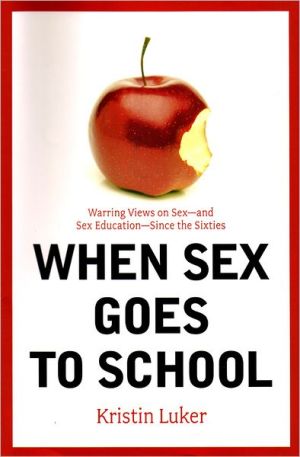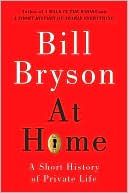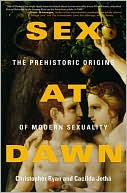When Sex Goes to School: Warring Views on Sex since the Sixties
There's a sexual revolution coming to a schoolroom near you, but it's not the one you remember.\ \ When Sex Goes to School explores the ideas and values behind the fight over sex education through the lives of parents, its most passionate participants. Distinguished sociologist Kristin Luker spent over twenty years talking to people in ordinary communities about sex and how, if at all, it should be taught. Luker argues that Americans are now deeply divided over sex, largely as a legacy of the...
Search in google:
There's a sexual revolution coming to a schoolroom near you, but it's not the one you remember.When Sex Goes to School explores the ideas and values behind the fight over sex education through the lives of parents, its most passionate participants. Distinguished sociologist Kristin Luker spent over twenty years talking to people in ordinary communities about sex and how, if at all, it should be taught. Luker argues that Americans are now deeply divided over sex, largely as a legacy of the 1960s. She traces sex education from its birth in 1913 to its more politicized modern incarnation, examining in detail the marriage-minded 1950s and the sexual and gender revolutions of the 1960s. She explores how our parents' sexual attitudes have influenced us and, in turn, how our sexual choices affect the way we teach our children about sex. Her conclusions are unexpected, and after reading this book it is impossible to look at the intersection of the intimate and the political in the same way. The New York Times - Judith Shulevitz If the two sides are moving closer together and sex education doesn t work anyway, what exactly are we fighting about? The drama of this book comes from watching the exceptionally thoughtful Luker try to figure that out.
\ Judith ShulevitzIf the two sides are moving closer together and sex education doesn’t work anyway, what exactly are we fighting about? The drama of this book comes from watching the exceptionally thoughtful Luker try to figure that out.\ — The New York Times\ \ \ \ \ Publishers WeeklyLuker, a University of California- Berkeley sociologist and author (Abortion and the Politics of Motherhood), gingerly examines the issues of sex education that divide communities along political lines or between the competing visions of sex as pleasure versus sex as danger. Luker interviews parents and leaders in several representative communities (she doesn't identify their states): Shady Grove, a once-rural West Coast town where two sides are battling over a new human sexuality curriculum; Billingsley, a Southern agrarian town where everyone is a churchgoer and which still boasts an "astonishing variety of views"; a new West Coast community Luker calls Las Collinas, which promotes the sex education approach called abstinence only; and Lincoln Township, an affluent community in the eastern rust belt. Many voices express concern that the last three decades' approach to sex education in America, pushed by groups responding to the crisis in teen pregnancy and AIDS, is inadequate and even harmful, diminishing the importance of marriage and morality. Luker reaches back to the Progressive Era in elucidating this debate's roots, and examines the 1960s' focus on management of risk rather than deterrence. Her work is investigative and evenhanded, and cuts through the murk of values versus pragmatism. (May) Copyright 2006 Reed Business Information.\ \ \ Library JournalNo stranger to controversial topics, Luker (sociology, Univ. of California, Berkeley; Abortion and the Politics of Motherhood) examines American views on gender, marriage, and sexuality and investigates the bitter debate over what schools should teach children about sex. She explores the complex relationships between our social values and our ideas about sexuality, morality, and politics while looking to the history of 20th-century American sex education and the sexual revolution of the 1960s for insight into the factors that drive people to feel so strongly about what (or whether) their children should be taught in school about sex. Citing interviews conducted with ordinary, opinionated Americans over the past 20 years, she guides the reader to an understanding of the deeply held beliefs that drive the sex education conflict. Luker uses the language and methods of sociology to bring a remarkably even-handed perspective to a topic often obscured by emotionally charged political rhetoric. Readers who debate her conclusions will still appreciate the fairness with which she treats her subject. This book is well researched and well documented, containing appendixes, numerous notes, and a substantial bibliography. Highly recommended for sociology collections in academic and public libraries.-Elizabeth L. Winter, Georgia State Univ., Atlanta Copyright 2006 Reed Business Information.\ \








